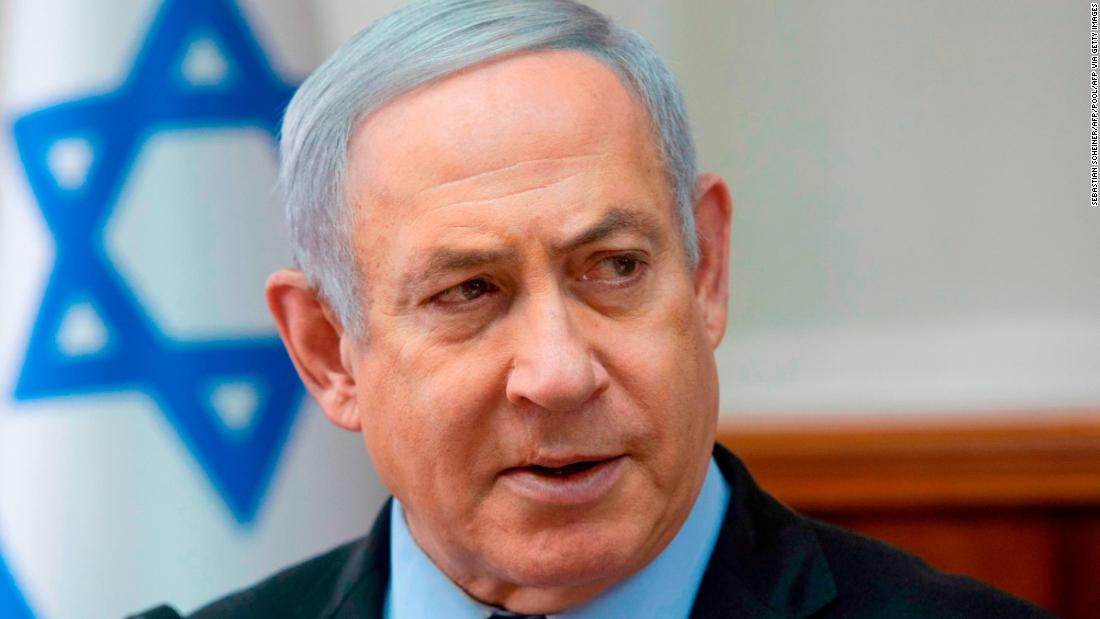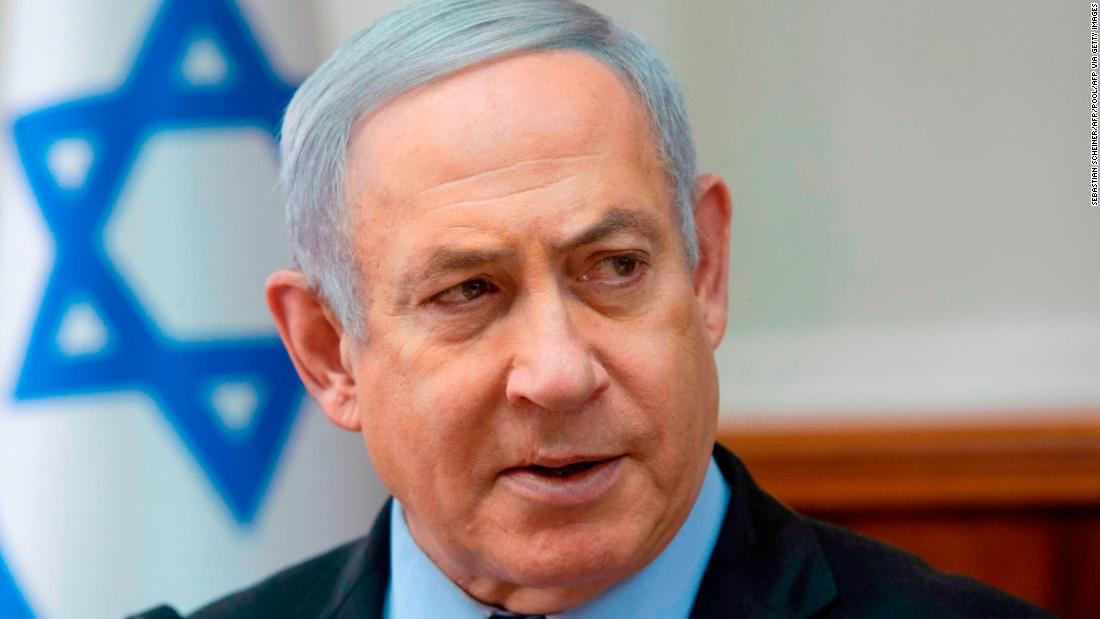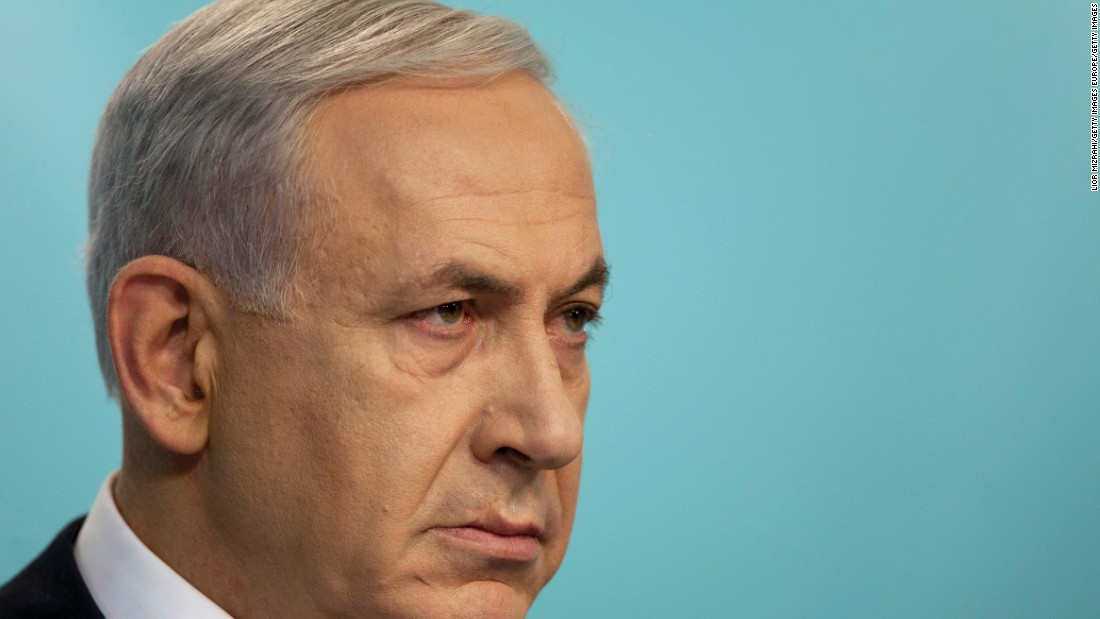Israel’s Netanyahu seeks immunity from prosecution in corruption cases

(CNN)Israeli Prime Minister Benjamin Netanyahu has requested immunity from prosecution in three corruption cases in which he faces indictment on charges of bribery, fraud and breach of trust.
“What is being done to me is a field court-martial by misleading the public,” Netanyahu said in a televised statement Wednesday evening in Jerusalem. “The immunity law is intended to protect elected officials from fabricated legal proceedings — from political indictment intended to damage the will of the people. This law intends to ensure that those elected can serve the people according to the will of the people, not the will of the law clerks.”
Charges against Netanyahu were unveiled in November. He’s maintained his innocence throughout the ongoing criminal proceedings, calling them an “attempted coup” led by the left and the media.
Political rival slams request
Rival Benny Gantz, who leads the Blue and White party, blasted Netanyahu’s request, saying voters will have two choices in the upcoming elections in March.
” … the interests of Netanyahu will win or the national interest will win. Or there will be an extreme immunity government or there will be broad unity government. Or the kingdom of Netanyahu or the State of Israel,” said Gantz shortly after Netanyahu spoke.
“Blue and White led by me will do everything according to the law.”
Members of Knesset, including the Prime Minister, are entitled by law to request parliamentary immunity from prosecution. The request is considered by the Knesset’s House Committee. If the request is approved in the committee, it is then passed on to a vote in the full 120-member Knesset.
But the House Committee hasn’t been formed since Israel’s election in April began a period of prolonged political deadlock. Elections in September failed to break that deadlock, and once again, no House Committee was formed. Without a seated committee, there is no way to consider Netanyahu’s request for immunity, putting any criminal proceedings against the Prime Minister on hold at least until the upcoming elections on March 2.
Members of the opposition have said they would seek to form a temporary House Committee to consider the immunity request, but it’s unclear at this stage if such a move is likely to happen.
If granted, the immunity from prosecution applies only to the current Knesset, meaning Netanyahu would have to request immunity again following any subsequent election.
Moments after Netanyahu finished his statement, former Defense Minister Avigdor Liberman said his Yisrael Beiteinu would vote unanimously against immunity. “It’s now clear beyond any doubt. All that Netanyahu is interested in is immunity,” said Liberman in a statement.
“This is what he wakes up with in the morning, this is what he lives, this is what he breathes throughout the day, this is what he goes to bed with. The State of Israel has become a hostage of a private personal problem of Netanyahu.”
Four reasons for seeking immunity
If the immunity request is rejected, Netanyahu does not have to resign immediately. Under Israeli law, he can remain Prime Minister while the trial is ongoing. He only has to resign if he is convicted and that conviction is upheld through the appeals process, a process which could take years.
Under Israeli law, Knesset members can request immunity citing one of four reasons:
- Protection of freedom of expression
- Prosecutors were acting in bad faith or discriminating against the member
- The Knesset has already disciplined the member and there is no public interest in a trial
- Criminal proceedings would cause serious damage to the functioning of the Knesset, its committees, or the will of the voters. In addition, there would not be considerable damage to the public interest without a trial.
Since the immunity law was updated in 2005, no member of Knesset has been granted immunity from prosecution. (There is one open request for former Minister of Welfare Haim Katz, a member of Netanyahu’s Likud party, who faces indictment on charges of fraud and breach of trust.) Prior to 2005, parliamentary immunity was automatically granted to members of Knesset — the law was changed to force them to submit a formal request, which would then be weighed by the Knesset House Committee.
In recent weeks, Netanyahu had begun floating the idea of seeking immunity at campaign rallies, warming his voter base to the possibility. On Sunday, at an event in Tel Aviv, Netanyahu said, “Immunity is not against democracy. Immunity is a cornerstone of democracy.” The crowd erupted into cheers, with some shouting, “Take the immunity!”
Lengthy investigation
Since the investigations were announced three years ago, Netanyahu has waged a campaign of delegitimization against them, denouncing them as a media-driven witch hunt. As the investigations advanced, Netanyahu sharpened his rhetoric and expanded his attacks, saying, “Every day, my blood, my wife’s blood, my children’s blood is being shed by those with evil intent.” Calling the investigations “contaminated” and demanding that “the investigators are investigated,” Netanyahu began attacking the judicial system, the police, and the state prosecutor’s office.
“There is one law for others, and one law for Netanyahu,” he claimed in November when the indictments were unveiled.
As speculation grew earlier this week that Netanyahu would request immunity, Ayman Odeh, head of the Arab Joint List, tweeted Saturday, “I call on the entire public to seek immunity against the flu, not against an indictment of bribery.”
The decision to allow the formation of a Knesset House Committee now passes to Speaker of the Knesset Yuli Edelstein, a member of Netanyahu’s Likud party. If Edelstein decides not to allow the committee to form, the legal proceedings against Netanyahu could remain stuck until after the March elections. Israel’s legal deadlock would match its political deadlock.
Read more: https://www.cnn.com/2020/01/01/middleeast/israel-netanyahu-immunity-request/index.html


